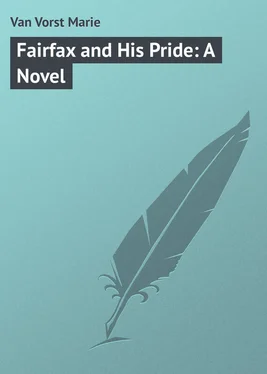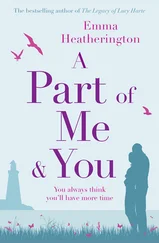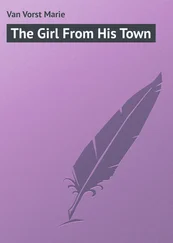Marie Van Vorst - Fairfax and His Pride - A Novel
Здесь есть возможность читать онлайн «Marie Van Vorst - Fairfax and His Pride - A Novel» — ознакомительный отрывок электронной книги совершенно бесплатно, а после прочтения отрывка купить полную версию. В некоторых случаях можно слушать аудио, скачать через торрент в формате fb2 и присутствует краткое содержание. Жанр: foreign_prose, на английском языке. Описание произведения, (предисловие) а так же отзывы посетителей доступны на портале библиотеки ЛибКат.
- Название:Fairfax and His Pride: A Novel
- Автор:
- Жанр:
- Год:неизвестен
- ISBN:нет данных
- Рейтинг книги:3 / 5. Голосов: 1
-
Избранное:Добавить в избранное
- Отзывы:
-
Ваша оценка:
- 60
- 1
- 2
- 3
- 4
- 5
Fairfax and His Pride: A Novel: краткое содержание, описание и аннотация
Предлагаем к чтению аннотацию, описание, краткое содержание или предисловие (зависит от того, что написал сам автор книги «Fairfax and His Pride: A Novel»). Если вы не нашли необходимую информацию о книге — напишите в комментариях, мы постараемся отыскать её.
Fairfax and His Pride: A Novel — читать онлайн ознакомительный отрывок
Ниже представлен текст книги, разбитый по страницам. Система сохранения места последней прочитанной страницы, позволяет с удобством читать онлайн бесплатно книгу «Fairfax and His Pride: A Novel», без необходимости каждый раз заново искать на чём Вы остановились. Поставьте закладку, и сможете в любой момент перейти на страницу, на которой закончили чтение.
Интервал:
Закладка:
Van Vorst Marie
Fairfax and His Pride: A Novel
BOOK I
THE KINSMEN
CHAPTER I
One bitter day in January in the year 1880, when New York was a tranquil city, a young man stood at the South Ferry waiting for the up-town horse car. With a few other passengers he had just left the packet which had arrived in New York harbour that afternoon from New Orleans.
Antony Fairfax was an utter stranger to the North.
In his hand he carried a small hand-bag, and by his side on the snow rested his single valise. Before him waited a red and yellow tram-car drawn by lean horses, from whose backs the vapour rose on the frosty air. Muffled to his ears, the driver beat together his hands in their leather gloves; the conductor stamped his feet. The traveller climbed into the car, lifting his big bag after him.
The cold was even more terrible to him than to the conductor and driver. He had come from the South, where he had left the roses and magnolias in bloom, and the warmth of the country was in his blood. He dug his feet into the straw covering the floor of the car, buttoned his coat tight about his neck, pushed his hands deep in his pockets and sat wondering at the numbing cold.
This, then, was the North!
He watched with interest the few other passengers board the little car: two fruit vendors and after them were amiably lifted in great bunches of bananas. Antony asked himself the question whether this new country would be friendly to him, what would its spirit be toward him, he asked this question of the cold winter air the city suddenly took reality and formed for him out of his dreams. Would it be kind or cruel? The coming days would answer: meanwhile he could wait. Some places, like some people whom we meet, at once extend to us a hand; there are some that even seem to offer an embrace. Through the car blew a sudden icy blast and New York's welcome to Fairfax was keen as a blow. There was an actual physical affront in this wind that struck him in the face.
Suppose the elements were an indication of what the rest would be? But no – that was ridiculous! There would be certainly warm interiors behind the snow-fretted panes of the windows in the houses that lined the streets on either side. There would be warm and cordial hearts to welcome him somewhere. There would be understanding of heart, indulgence for youth. He would find open doors for all his ambitions, spurs to his integrity and effort. He would know how to make use of these ways and means of progress. For years he had dreamed of the galleries of pictures and of the museum. It was from this wonderful city whose wideness had the intense outreach of the unknown that Fairfax had elected to step into the world.
New York was to be his threshold. There was no limit to what he intended to do in his special field of work. From his boyhood he had told himself that he would become great. He was too young to have discovered the traitors that hide in the brain and the emptiness of the deepest tears. He was a pioneer and had the faith of the pioneer. According to him everything was real, the beauty of form was enchanting, all hearts were true, and all roads led to fame. His short life focused now at this hour.
Life is a series of successive stages to which point of culmination a man brings all he has of the past and all his hopes. All along the road these blessed visions crowd, fulminate and form as it were torches, and these lights mark the road for the traveller. Now all Antony's life came to a point in this hour. He had longed to go to New York from the day when in New Orleans he had completed his first bust. He had moulded from the soft clay on the banks of the levees the head of a famous general, who had later become president. He was only twelve years old then, but his little work bore all the indications of genius.
He was an artist from the ends of the slender hands to the centre of the sensitive heart. The childlikeness, the beauty of his nature revealed it in everything he did; and he was only twenty-two years old.
As he sat in the horse car, his heart full of hope, his brain teeming with the ideal, he was an interesting figure to watch, and a fine old gentleman on his way up town was struck by the brilliancy, the aspect of the fellow passenger. He studied the young fellow from behind his evening paper, but the old gentleman could not make up his mind what the young man was. Aside from the valise at his feet Antony had no other worldly goods, and aside from the twenty-five dollars in his pocket, he had no other money. There was nothing about him to suggest the artistic type: broad-shouldered, muscular, he seemed built for battles and feats of physical strength, but his face was thoughtful for one so young. His eyes were clear. "He looks," mused the gentleman, "like a man who has come home after a very successful journey. I suspect the young fellow is returning with something resembling the story books' bag of gold." He humorously fancied even that the treasure might be in the valise on the straw of the car at the traveller's feet.
The car tinkled slowly through the cold. After a long while, well above a street marked Fiftieth, its road appeared to lie in the country. There were vacant lots on either side; there were low-roofed, ramshackle shanties; there were stray goats here and there among the rocks. Antony said to the conductor in a pleasant, Southern voice: "You won't forget to let me off at 70th Street." He rose at the conductor's signal and the ringing of the bell. The old gentleman, who was a canon of the Church, saw as the young man rose that he was lame, that he limped, that he wore a high, double-soled boot. As Fairfax went out he lifted his hat with a courteous "Good evening" to his only fellow passenger, for the others had one by one left the car to go to their different destinations. "Too bad," thought the canon to himself, "Lame, by Jove! With a smile like that a man can win the world."
CHAPTER II
The little figure in the corner of the pink sofa had read away the hours of the short winter afternoon curled up in a ball, her soft red dress, her soft red cheeks, her soft red lips vivid bits of colour in the lamplight. She had read through the twilight, until the lamps came to help her pretty eyes, and like a scholar of old over some problem she bent above her fairy tale. The volume was unwieldy, and she supported it on her knees. Close to her side a little boy of six watched the absorbed face, watched the lamp and the shadows of the lamp on the pink walls of the room; watched his mother as she sat sewing, but most devotedly of all he watched through his half-dreaming lids his sister as she read her story. His sister charmed him very much and terrified him not a little; she was so quick, so strong, so alive – she rushed him so. He loved his sister, she was his illustrated library of fairy tales and wonderful plays, she was his companion, his ruler, his dominator, and his best friend.
"Bella," he whispered at the second when she turned the page and he thought he might venture to interrupt, "Bella, wouldn't you read it to me?"
The absorbed child made an impatient gesture, bent her head lower and snuggled down into her feast. She shook her mane of hair.
"Gardiner," his mother noticed the appeal, "when will you learn to read for yourself? You are a big boy."
"Oh, I'm not so vewy big," his tone was indolent, "I'm not so big as Bella. You said yesterday that you bought me five-year-old clothes."
In the distance, above the noise of the wind, came the tinkle of the car-bell. Gardiner silently wished, as he heard the not unmusical sound, that the eternal, ugly little cars, with the overworked horses, could be turned into fairy chariots and this one, as it came ringing and tinkling along, would stop at the front door and fetch… A loud ring at the front door made the little boy spring up.
Читать дальшеИнтервал:
Закладка:
Похожие книги на «Fairfax and His Pride: A Novel»
Представляем Вашему вниманию похожие книги на «Fairfax and His Pride: A Novel» списком для выбора. Мы отобрали схожую по названию и смыслу литературу в надежде предоставить читателям больше вариантов отыскать новые, интересные, ещё непрочитанные произведения.
Обсуждение, отзывы о книге «Fairfax and His Pride: A Novel» и просто собственные мнения читателей. Оставьте ваши комментарии, напишите, что Вы думаете о произведении, его смысле или главных героях. Укажите что конкретно понравилось, а что нет, и почему Вы так считаете.











